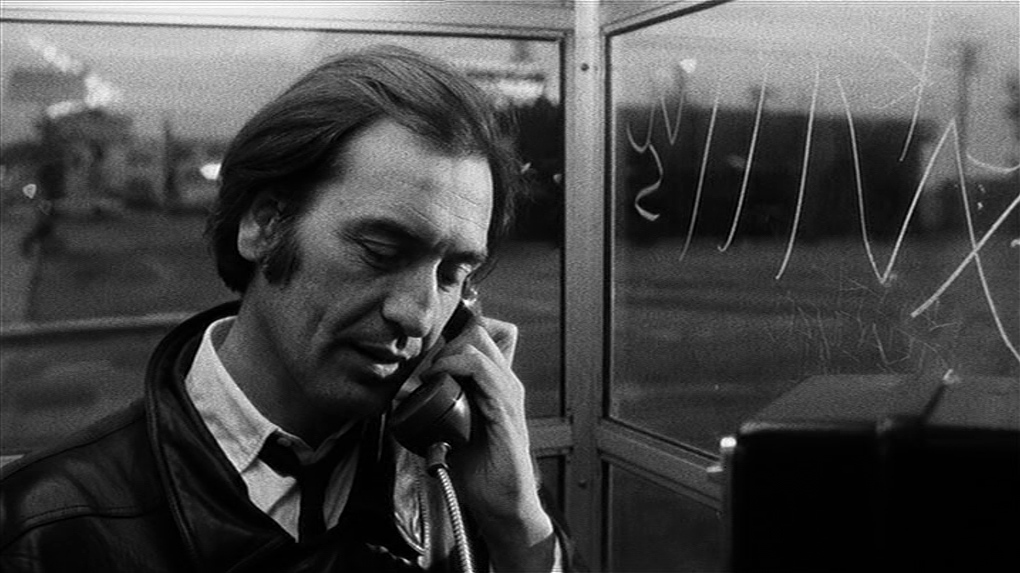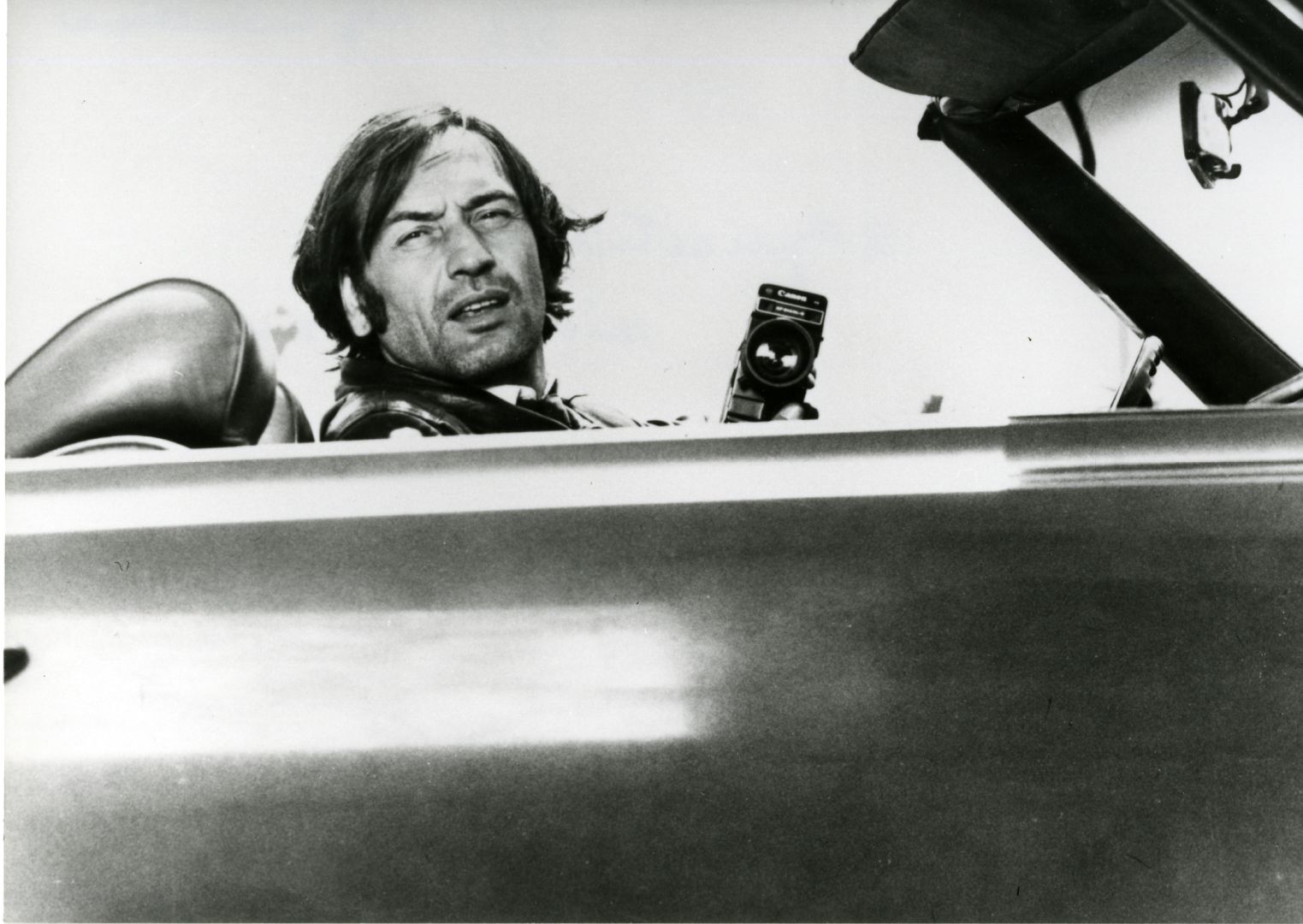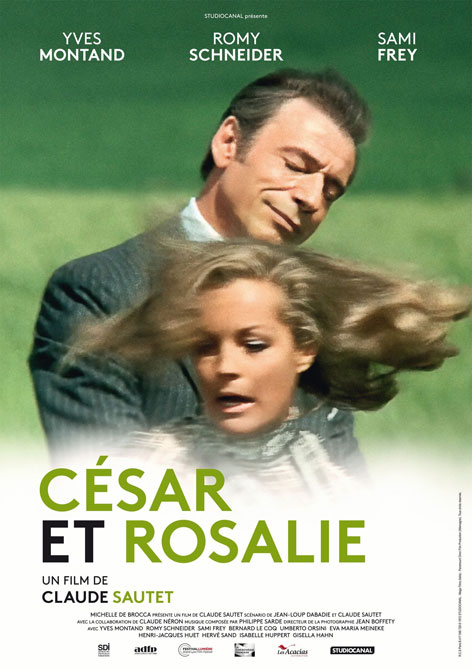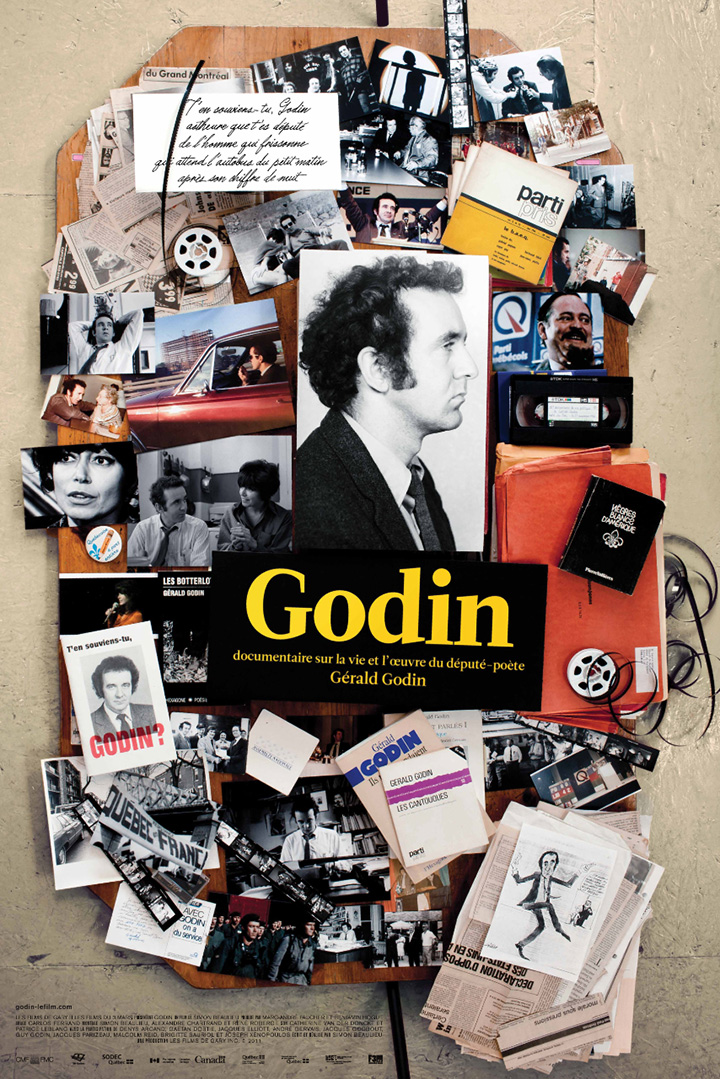The State of Things
For all sorts of reasons, we are never done with Wim Wenders’ cinema and his way of apprehending narratively (sometimes with the complicity of the writer Peter Handke) and photogenically (by his lucky star) the 1970s, especially in Germany and the US. Seizing the opportunity of a new series of accessible restorations, we present several of his films that were commonly requested for years, including Alice in den Städten, with music by Can, the legendary Krautrock band. A few legendary films from the 80s and 90s that extend the plastic themes and concerns of his early era will also be shown.
In Portugal, in a hotel devastated by a storm, a film crew is shooting The Survivors, a remake of a 1950s science fiction film. But the producer suddenly disappears without leaving any money, and the shooting has to be stopped. Consternation gives way to idleness, then to waiting...
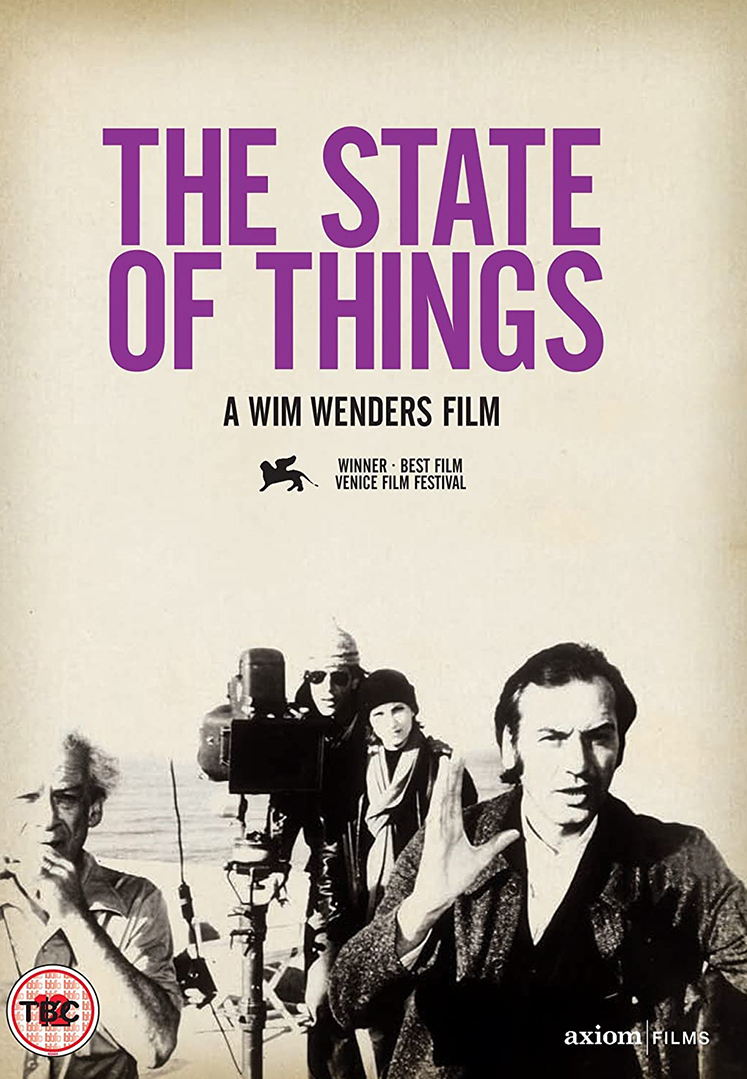
Wim Wenders
After studying medicine and philosophy, Wim Wenders left his hometown of Düsseldorf for Paris, where he forged his film culture in the effervescence of the 1960s. He then studied cinema in Munich and moved on to directing, enrolling in the New German Cinema movement. Noticed in Europe, his 1970s films saw the emergence of his favorite themes and affinities (American cinema, road movies, music). With The American Friend (1977), the filmmaker gained notoriety in the United States and began to work there. There he directed the famous Paris, Texas (1984), before returning to Germany to sign another flagship film of his career, Wings of Desire (1987). In addition to his work of fiction, he has directed several documentaries, particularly on artistic creation: music (Buena Vista Social Club), dance (Pina) or photography (The Salt of the Earth), a discipline that the filmmaker also exercises himself.
Photo : Unifrance

